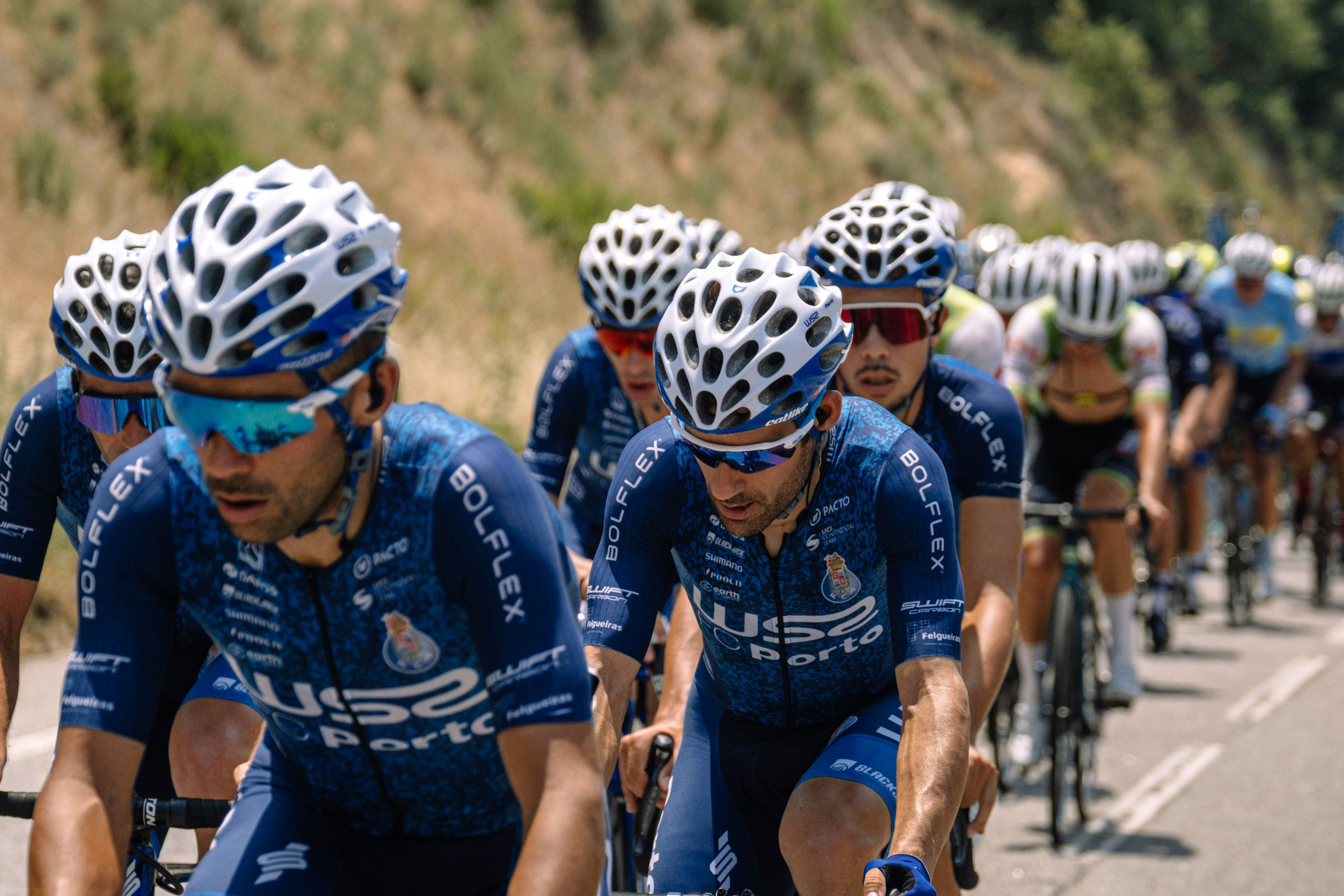Seven riders from Portuguese squad W52-FC Porto banned for doping
Three Volta a Portugal winners among those receiving sanctions as Portuguese federation confirms tougher doping rules for 2023

Following the July and August suspensions of 10 riders from the Portuguese Continental squad W52-FC Porto, the Portuguese Anti-Doping Authority (ADOP) has confirmed bans of three to seven years for seven of the squad's riders.
In an update to the ADOP sanctions list on Tuesday, the authority stated that three former winners of the Volta a Portugal were among those suspended from cycling as a result of the long-running Operação Prova Limpa (clean race) investigation.
2019 winner João Rodrigues, who also won the Volta ao Algarve ahead of Ethan Hayter and Kasper Asgreen in 2021, has received the longest ban – three years handed down by ADOP for the 'possession of prohibited methods', followed by four from the UCI for biological passport irregularities. He will lose his results from 2018 and 2021.
2011 winner Ricardo Mestre received a three-year ban for possession of the human growth hormone analog Somatropine, while Rui Vinhas, a surprise Volta a Portugal winner in 2016, also took a three-year ban for possession of the corticosteroid Betamethasone.
Four other members of the team also received three-year bans. Daniel Mestre was found in possession of Betamethasone, and Ricardo Vilela and Samuel Caldeira were both found in possession of multiple substances, including Somatropine, insulin, human growth hormone, and TB500.
Finally, José Neves, who celebrated a race win with a 'shush' gesture back in July after he was one of the few W52 riders to avoid suspension, was found in possession of human growth hormone. All seven riders received a one-year reduction to their bans after admitting to anti-doping violations and accept their suspensions, which run from April 2022.
ADOP is continuing its investigations, with four staff members and three riders – Joni Brandão, Jorge Magalhães, and former Katusha rider José Gonçalves – still implicated along with team directors Nuno Ribeiro and José Rodrigues and two mechanics.
Get The Leadout Newsletter
The latest race content, interviews, features, reviews and expert buying guides, direct to your inbox!
W52-FC Porto, the most successful team in the country, having dominated the Volta a Portugal with eight wins in the past decade, now face an ignominious ending with only two riders – Guilherme Mota, and three-time Volta champion Amaro Antunes – not implicated in the Prova Limpa probe.
The team had been led by ex-racer and former Volta winner Ribeiro, himself a controversial figure having been stripped of a Volta title in 2009 after testing positive for CERA.
Last year, two-time Volta champion Raúl Alarcón lost his titles and was handed a four-year ban dated to 2019, while this July – unrelated to the ongoing investigation – fellow former W52 rider Edgar Pinto was also handed a four-year ban.
Operação Prova Limpa was put into action in late 2021 following an anonymous police tip, with W52 the main target of the investigation. Numerous doping products were seized in police raids on team hotels, homes, warehouses and vehicles in April, with 10 riders charged as a result and Ribeiro arrested along with a team soigneur.
July saw ADOP hand down suspensions to eight riders and two staff members, followed by the UCI suspending the entire team from competition.
Further drama came in the lead-up to August's Volta a Portugal as the ADOP director revealed he was living under police surveillance after receiving numerous threats – including a shotgun cartridge in the post – while riders on three other teams were subject to police raids two days before the start.
Tougher anti-doping rules in 2023
On Wednesday, the Portuguese Cycling Federation (FPC) announced nine Portuguese UCI Continental teams for 2023, noting separately that W52-FC Porto's application would be subject to UCI ruling on any ban for the team.
Team boss Adriano Quintanilha confirmed last month that he's seeking to keep W52 going, telling JN that he is "available to collaborate to make a clean and truthful sport", pledging "zero tolerance" if their license application is accepted.
Last month, the federation announced that the UCI's biological passport – a measure not required in order to operate as a Continental team – would be extended to encompass all Portuguese teams.
In an additional move, riders and staff with a history of doping also be prohibited from joining a team – unless said person had only one ban of under two years over five years ago on their record.
"After good talks with the Government, ADOP, and the UCI, we decided that the biological passport will be implemented among all cyclists of the Portuguese Continental teams," said FPC president Delmino Pereira.
"All cyclists registered in the teams will now be part of the ADOP and UCI target groups. It will be an ambitious and expensive bet. All parties will increase their investment and the teams will also have to contribute part of this extraordinary cost."
Dani Ostanek is Senior News Writer at Cyclingnews, having joined in 2017 as a freelance contributor and later being hired full-time. Before joining the team, she had written for numerous major publications in the cycling world, including CyclingWeekly and Rouleur. She writes and edits at Cyclingnews as well as running newsletter, social media, and how to watch campaigns.
Dani has reported from the world's top races, including the Tour de France, Road World Championships, and the spring Classics. She has interviewed many of the sport's biggest stars, including Mathieu van der Poel, Demi Vollering, and Remco Evenepoel, and her favourite races are the Giro d'Italia, Strade Bianche and Paris-Roubaix.
Season highlights from 2024 include reporting from Paris-Roubaix – 'Unless I'm in an ambulance, I'm finishing this race' – Cyrus Monk, the last man home at Paris-Roubaix – and the Tour de France – 'Disbelief', gratitude, and family – Mark Cavendish celebrates a record-breaking Tour de France sprint win.